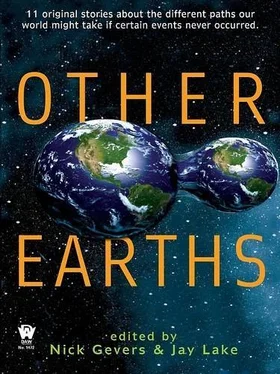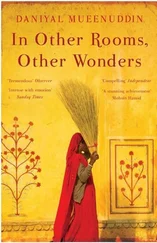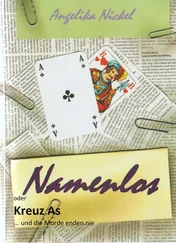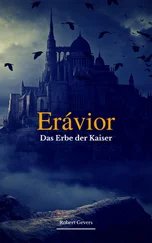“Csilla, there is someone I want you to meet.” Mrs. Mad’r squeezed her shoulder and then stepped aside.
The woman who stood before her was so small, no taller than Csilla herself, and so slender. Her bones were like the bones of birds. She was so pale, like white stones at the bottom of a stream. Her skin was wrinkled, all over her cheeks and around her eyes. She looked infinitely old, but the hair that hung over her shoulders was as green as grass.
“Drink this,” she said in an accent so strange, so ancient, that it seemed to echo from a thousand years in the past. As the honey wine burned her throat, Csilla felt the crack in her chest …not close, but ease.
“Csilla,” said Mrs. Mad’r, “I told you that the Daughters of the Moon were dead. That is what we would like the world to believe—the T̈nd’r have been feared enough, and an almost-immortal ancestress might convince even the twentieth century that we are the witches we were once thought to be. But this is Ibolya, the last of the Daughters of the Moon.”
“Welcome, child,” said Ibolya. Her voice sounded like the whisper of leaves overhead. “You have lost so much, we have all lost so much. That is why you must help us find ourselves again.” She turned to Mrs. Mad’r. “Show her, Queen. Show her what we are doing here, in this new land.”
“Den’s,” said Mrs. Mad’r to her brother, “I think we can begin.”
It was a song Csilla’s grandmother had never taught her, and it sounded as ancient as Ibolya herself. Mrs. Mad’r sang the first verse, then Professor Kert’sz joined in, then the others, one by one, until even Mrs. Martin was singing. Csilla watched firelight flicker on the singers’ faces.
First came a doe, with its fawn. They looked at the firelight and the circle of singers before slipping away again into the forest. Then came a fox with a mouse, its dinner, hanging from its jaws. Then a porcupine curled into a ball by the base of a stone, like a small stone itself. An owl swooped over the fire, adding its cry before it flew off into the forest. And the forest around them was growing. Csilla could feel it, the thickening of trees, the flowing of their sap. The ferns uncurling fronds, sending their spores floating into the air. Moss climbing the tree trunks, covering the scars where there had once been saws.
Ibolya put her hand on Csilla’s shoulder. It felt as light as a dry leaf. “Someday, this forest will be like those I knew in my youth, so long ago, and the T̈nd’r will care for it. Perhaps this new world will be better for us than the old. And perhaps we will restore what has been damaged. That is what we are, my child. That is what is means to be T̈nd’r.” Then the Daughter of the Moon slipped silently into the trees, so that for a moment Csilla wondered if she had actually been there. But she was still holding the cup of honey wine in her hand.
One by one, the singers stopped, and she could hear the forest around her, the sounds and silence of the night.
“Csilla,” said Professor Kert’sz from the other side of the fire, “will you tell us one of your grandmother’s stories?”
No, she started to say. What did the stories matter? All they did was show how often the T̈nd’r had lost. How often they had hidden, slept on straw, begged for scraps of food. But the stories had mattered to her grandmother and to her father, and they mattered to everyone here. She could see it in their faces, all the faces in the firelight looking at her, waiting. Susanna Martin nodded, as though to say, go on, I know you can.
“Shortly before Istv’n was to be crowned king of Hungary,” said Csilla, “one of his huntsmen came to him and said, ‘I have been hunting in the forest and have seen a marvel: a stag as white as snow.’ So Istv’n determined that he would hunt the stag. He set out in the morning with his retinue, but he soon lost them and rode on through the forest alone. At noon, when he was growing hungry, he came to a glade, at the center of which stood a woman with skin like milk and hair as green as the leaves of an oak tree. ‘Lady,’ he said …”
Around her, the forest listened.
We watched as the drowned woman walked through the palace of Coldgate. Her hair was a sodden mass; her skin as white as birch bark, mottled with blue shadows. Damp footprints appeared behind her, and swiftly vanished again.
“She isn’t the first,” Oldmark said to me.
“So you said in your letter.” That’s why they’d come to me, after all, and I had to confess it was flattering. It’s not easy building up a reputation in a city as big as London, crammed with weather-readers, wind-listeners, earth-healers. And river-speakers. Not easy, especially if you are a woman, and young.
You’d think having a queen on the throne, in this year of our Lady Sixteen Hundred and Two, would make a difference. But then again, Aeve wasn’t entirely human, and perhaps that made a greater one.
“You see, Mistress Dane—” Oldmark broke off. For a courtier, he seemed to have some difficulty in expressing himself.
“You may call me Mistress Isis, if you wish. We’re to be working together, after all. And I’ve seen the drowned before, you know. Part of my job is to find the bodies of those who have been unfortunate enough to meet their deaths in the river.”
“I suppose you work principally with the Thames?”
“Yes, but also with the Wye, the Tyne …And I grew up on the banks of the Severn, near the Welsh border at Lydd’s Ney. That was where I first found I could river-read.”
Midnight in summer, the soft stars above, and a child staring at a woman standing on the river shore, her hair weed green, the ghost of water swirling round her. “My name is Severna.” A genius loci, a spirit of place, a goddess, once, when the Romans were here. And she told me what I was and what I would be able to do. Later, I came to Oxford, then London, moving eastward as the power of Aeve’s throne grew, with triumphs over the Spanish, the French.
“Do you think this is to do with the Thames?” Oldmark asked. The woman was gliding through the wall. A moist stain showed briefly in her wake, and then there was nothing.
“I’m not sure.” Some mages pretend to know everything, all bombast and certainty, even if they couldn’t tell you whether it was day or night. This would not, I knew, be the right tack to take at Aeve’s court: the queen had half-faery blood, could smell out a lie as easily as if it were a rat under the floorboards. She hadn’t kept her throne for ninety years for nothing. It was hard to explain to Oldmark, but this did not feel like the genius loci of the Thames: Thamesis, that bearded, weedy, silty presence, a spirit old when the first hunters had come to his shores, before history began.
“Can you find out?”
“I believe so. Tell me, Lord Oldmark, what is the lowest point of Coldgate?”
Oldmark thought for a moment. “It would be the cellars, where we keep the ale. They say the foundations date from the days of the Romans. I do not know whether that is true, but certainly there are a great many steps leading down to the cellar …”
“Please take me there, Lord Oldmark, and I will see what is to be seen.”
He was right about the steps. I counted forty, leading in an arc down into the musty depths of the cellar. The floor was made of flags, a glossy gray stone. The cellar smelled of wine, of moss, of rivers. Oldmark left me in a small pool of light cast by a candle; when he had gone, I blew the candle out and stood alone in the dark.
At once, the drowned were all around me, sensing my presence as they might sense the spirit of water. I felt a chill breath on my face. Damp fingers trailed through my hair.
Читать дальше












